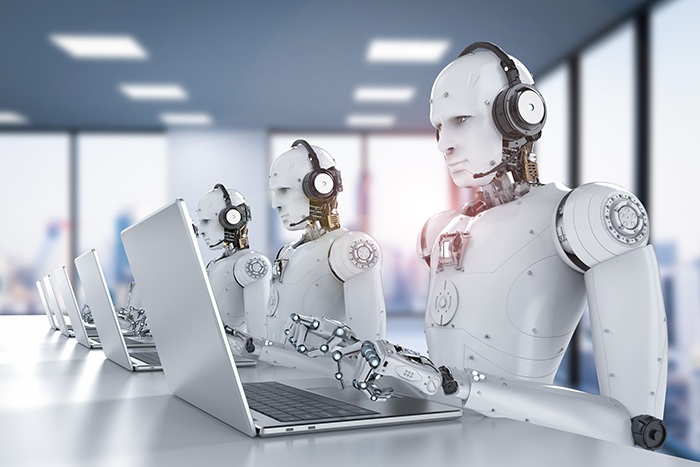People, Not Products, are the New commodities
By Millie Williams

The commodities market is on the onward rise, in China and across the rest of the world.
With China being the leader of the nations tagged the Asian giants, it leads the pack as one of the largest producers and consumers of commodities.
Commodities are defined as any product, raw or processed, which can be sold in markets across the world.
There are several commodities available on the market, from Grain to precious metals, from electricity, oil, beef, orange juice, and natural gas, which are traditional commodities; on the other hand, foreign currencies, emissions credits, bandwidth, and certain financial instruments are also part of today's commodity markets.
From the times when trade was by the barter system and even before then, commodities have been the object of trade.
This trade system has continued for a long time from commerce to industries like the human resource and other related industries.
 Times have indeed changed and interestingly so, a new phenomenon has overtaken the world of commerce, trade and Human Resources.
Times have indeed changed and interestingly so, a new phenomenon has overtaken the world of commerce, trade and Human Resources.
The question on the lips of the reader is, what could this new product, strong enough to take the place of commodities, be?
To answer this question, we need to consider a major factor that most people often ignore.
This vital part of companies and businesses is known as human resources.
For many years, companies and businesses have ignored the most important part of their existence: a part that is worth over 40 billion dollars in paid expenses.
No matter how much cotton or crude oil may be the top selling commodities in China, here’s a shocker, in this fast emerging world, the commodities of choice are people, not products.
We have drawn out a series of reasons that succinctly explain why the new commodity is people and not products.
商品被定义为任何产品:原材料或加工产品,并可在全球市场销售。市场上商品有很多种,从谷物到贵金属,从电力,石油,牛肉,橙汁到天然气这些都是传统商品;另一方面,外汇,信贷,带宽和某些金融工具也是当今商品市场的一部分。商品已经成为贸易的对象。
时代正在不断变化,一种有趣的新现象已经超越了商业,贸易和人力资源的世界。
这种新商品的能力有多大?
在公司和企业中这一重要新商品被称为人力资源。多年来,公司和企业都忽视了其存在的最重要性:首选的商品是人而不是产品。
 Human relationship inspires customer loyalty
Human relationship inspires customer loyalty
人际关系激励客户忠诚度
For a very long time, individuals with a high intelligence quotient stood out as the brightest and the best when compared with others, but with the evolution of time, individuals with high emotional quotient took over.
It is no news, therefore, that people will rather do business with their friends, family or those who they ‘feel comfortable’ around.
It is because of this reason that the level of emotional intelligence in individuals has not just become a top skill to be harnessed, but the greatest skill human resource departments in businesses and organizations all over the world have adopted.
The consequence of this is that rather than going for products to speed up processes, companies and organizations now spend resources of equipping staff with requisite skills, like learning to work under stress, ability to communicate with others and the all-important ability to empathize with people of different culture, creed and tribal extraction.
For those in the know, the often ignored virtues like being polite, going the extra mile for a customer and celebrating special moments with clients can lead to major shift in fortunes for a business.
 很长一段时间,具有高智商的人与其他人相比是最受欢迎的,但随着时间的推移,具有高情商的人更有市场。人们宁愿与朋友,家人或他们“感到舒适”的人做生意。
很长一段时间,具有高智商的人与其他人相比是最受欢迎的,但随着时间的推移,具有高情商的人更有市场。人们宁愿与朋友,家人或他们“感到舒适”的人做生意。
正由于这个原因,个人的情商水平不仅成为了被利用的顶级技能,而且是全世界企业和组织人力资源部门所追求的最高技能。公司和组织花费资源为员工配备必要的技能,如学习在压力下工作,与他人沟通的能力以及同情人的能力。
In the age of artificial intelligence individuals still prefer the human touch
在人工智能时代,人仍然更喜欢有情感的真实的人类
 The emergence of smart and artificial intelligent machines has driven the world to all look into the direction of the next talking robot or the newest Chabot’s or the latest drones, which can aid delivery of goods over long distances.
The emergence of smart and artificial intelligent machines has driven the world to all look into the direction of the next talking robot or the newest Chabot’s or the latest drones, which can aid delivery of goods over long distances.
Study has shown, however, that the demand for these artificial intelligent machines or technology may have risen, but most individuals still choose the face of the pizza man over the sight of a gizmo.
No matter how much chat robots are trained and programmed to attend to complaints, issues and challenges facing their human clients, many have mentioned on several occasions that they would rather listen and be attended to by the voice of a real human customers care agent.
This means that companies that intend to succeed still require the services of more trained humans over a dozen machines.
This points to the emerging trend across the world: people, and not products, are the new commodity.
 研究表明,对人工智能机器或技术的需求可能已经上升,但大多数人仍然会选择人的服务而不是机器。无论聊天机器人接受过多少培训和编程以使它们能应对人类客户的投诉,问题和挑战,但人更愿意接收真正的人类客服的服务。
研究表明,对人工智能机器或技术的需求可能已经上升,但大多数人仍然会选择人的服务而不是机器。无论聊天机器人接受过多少培训和编程以使它们能应对人类客户的投诉,问题和挑战,但人更愿意接收真正的人类客服的服务。
In conclusion, the few points explained above have exposed the new trend, which is practiced in the world: regardless of how fast commodities are regarding sales, people are the new commodities and they are poised to take the place of more products as the years passes.
总之,以上已经揭示了世界的新趋势:无论物品的销售速度有多快,人都是新商品,随着岁月的流逝,人正准备取代更多的产品。